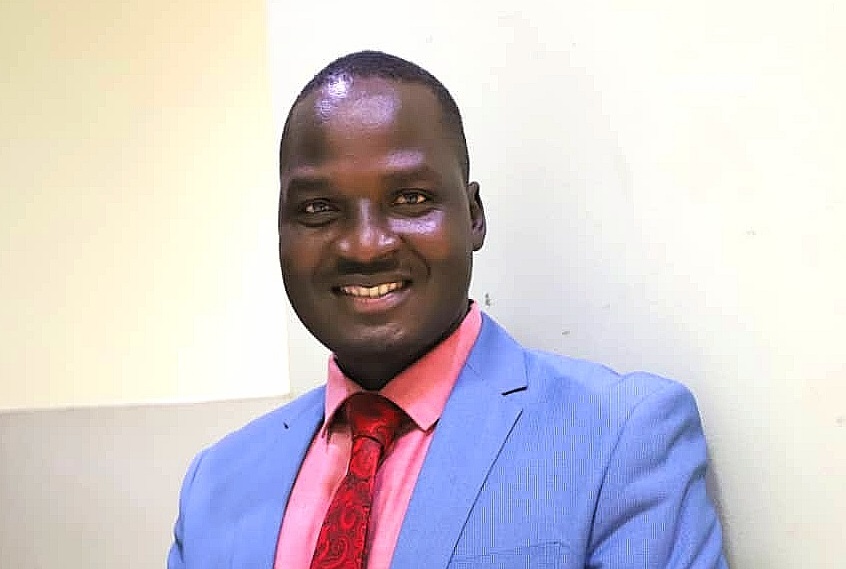By Walter Akena
From ancient times, political figures switching parties has been common practice. Historical examples abound: Hamlin, Abraham Lincoln’s first Vice President, a lifelong Democrat, switched parties in 1856, rejecting his party’s pro-slavery stance. Similarly, Ronald Reagan, once a staunch Democrat, famously declared upon switching to the Republican Party in 1962, “I didn’t leave the Democratic Party. The party left me.”
In Uganda, political party switches are no less frequent, dating back to the infamous 1964 crossing of the floor by Leader of the Opposition Bazil Bataringaya, who moved from the Democratic Party (DP) to the Uganda People’s Congress (UPC). President Museveni himself has shifted allegiances several times, transitioning from DP, UPC, FRONASA, and UPM before ultimately establishing the National Resistance Movement (NRM). In Uganda, when high-profile figures switch sides, it quickly becomes a topic of national debate.
Earlier this week, a mainstream media outlet reported that former opposition stalwarts Abdu Katuntu, MP for Bugweri County, and Martin Ojara Mapenduzi, MP for Bardege-Layibi, officially joined the ruling National Resistance Movement (NRM) after previously being members of the Forum for Democratic Change (FDC). Their, yet-to-be-confirmed, decision has ignited public debate, with many concluding that the duo’s defection was driven by personal and financial gain.
This narrative was cleverly captured in Dr. Spire’s satirical cartoon, depicting President Museveni hauling them away as his latest “purchase” from China Town Store. The insinuation reflects a deeply rooted but fundamentally flawed belief within Uganda’s opposition—that political shifts are motivated purely by self-interest and personal profit.
Historically, prominent figures like Tom Butime, Aggrey Awori, Betty Kamya, Alex Onzima, and Beatrice Anywar, among others, have faced intense criticism after switching to the ruling party. The opposition often paints these moves as betrayals rather than ideological shifts. However, this narrow-minded view ignores the complexities of political affiliations and dismisses the possibility that such decisions might be based on shifting beliefs or dissatisfaction with former political homes like in the case of Hamlin and Ronald Reagan.
Curiously, when figures move from the ruling NRM to the opposition, the reaction is strikingly different. They are often hailed as patriots, lauded for their commitment to democratic ideals. When Dr. Kizza Besigye, Maj. Rubaramira Rurangaranga, Augustine Ruzindana, Betty Kamya, Maj. Gen. Mugisha Muntu and others left the NRM to form the Reform Agenda, which later became the FDC, they were celebrated as visionaries dedicated to upholding democracy. Besigye and co.’s decision to leave was rooted in their belief that the NRM had strayed from its original principles, as expressed in his now-famous missive criticizing the party.
Likewise, intra-opposition shifts rarely provoke the same level of hostility. Take Prof. Ogenga Latigo, Kassiano Wadri, and Odonga Otto, for instance, who moved from the DP to the FDC; or Katuntu’s own earlier switch from UPC to FDC. These transitions are typically viewed as reflections of evolving ideologies or dissatisfaction with internal party dynamics, rather than opportunistic betrayals.
The hypocrisy becomes glaring when one compares the reactions to defections in opposite directions. The opposition’s outrage when a figure moves to the NRM contrasts sharply with their applause when someone leaves the ruling party. This double standard is emblematic of a broader issue: the failure to recognize that political affiliation is inherently fluid.
Article 29(1)(e) of Uganda’s Constitution guarantees every citizen the freedom of association, including the right to join and leave political parties. If Besigye can rightfully depart from the NRM for the FDC, then Mapenduzi and Katuntu are equally entitled to switch to the NRM without being accused of selling out.
The reality is that political party shifts often reflect deeper concerns about the direction of the party in question. Besigye famously quipped, “If a man cannot change his mind, we may as well wonder if he has one.” Sometimes, switching political vehicles is a matter of discernment. If a party is no longer functioning, insisting on sticking with it is as reckless as driving a car with a broken engine—it is bound to lead to disaster.
Mugisha Muntu’s departure from the FDC to form the Alliance for National Transformation (ANT) was a response to irreconcilable divisions within the FDC. Similarly, Besigye’s Katonga group recently abandoned the FDC, claiming it was beyond repair. They have already begun the process of purchasing the latest 2025 model of the PFF Prado V8 to deliver them to the State House.
Quite understandably, politics is a numbers game, and losing even one member can hurt a party. However, instead of lambasting defectors, political parties would do better to address the underlying reasons for their departure. By engaging in honest introspection and cleaning their houses, parties could make themselves more attractive and reduce the frequency of defections. Ultimately, the strength of a party lies not in clinging to members through coercion but in creating an environment, that encourages voluntary loyalty.
Mapenduzi and Katuntu’s decision to join the NRM should not be simplistically dismissed as a transaction motivated by money. Such a perspective trivializes politics and detracts from the more complex, legitimate motivations behind these decisions. Political allegiance is not static, and as with all human endeavours, change is both inevitable and necessary.
The writer is a public policy analyst and a political commentator
Send us your story or opinion on: dailyexpressug@gmail.com. You can also follow Daily Express on WhatsApp for all the latest news and updates.


